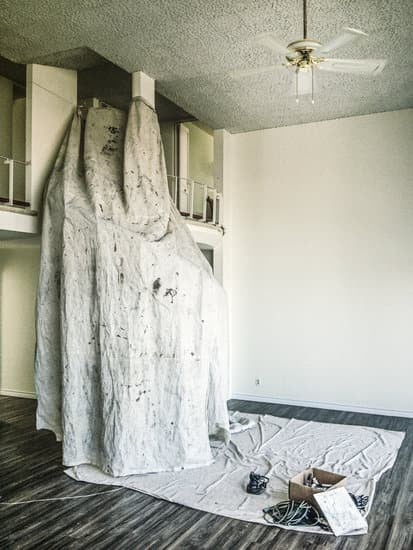When it comes to financing your home improvement projects, your credit score plays a vital role in determining whether you qualify for a loan and at what interest rate. Lenders use credit scores to assess the risk associated with lending you money, making it essential to understand how your credit score impacts your eligibility for a home improvement loan.
A good credit score reflects your financial responsibility and ability to manage debt, demonstrating to lenders that you are a trustworthy borrower. On the other hand, a low credit score may make it difficult for you to secure a loan or may result in higher interest rates. Therefore, knowing where you stand with your credit score is crucial before applying for a home improvement loan.
In this article, we will delve into why credit scores matter when seeking funding for home improvements. We will explore how credit scores influence loan eligibility and interest rates and provide insights on improving and maintaining a good credit score.
Additionally, we will discuss the minimum credit score requirements for different types of home improvement loans and highlight alternative financing options available to those with lower credit scores. By understanding the importance of credit scores and taking proactive steps towards achieving or maintaining an excellent rating, you can optimize your chances of obtaining the necessary funds to bring your home improvement dreams to life.
What is a Home Improvement Loan and How Does it Work
A home improvement loan is a financial product specifically designed to fund renovations, repairs, and other improvements to a home. These loans can be used for a wide range of purposes, including kitchen remodels, bathroom upgrades, roof repairs, and more. The main goal of a home improvement loan is to provide homeowners with the necessary funds to make these improvements without depleting their savings or taking on high-interest credit card debt.
There are several types of home improvement loans available to borrowers. One common type is a personal loan, which is an unsecured loan that does not require any collateral. Personal loans typically have fixed interest rates and repayment terms ranging from one to seven years.
Another option is a home equity loan, which allows homeowners to borrow against the equity in their property. Home equity loans often have lower interest rates than personal loans because they are secured by the value of the home.
A third option is a home equity line of credit (HELOC). Similar to a home equity loan, a HELOC allows homeowners to borrow against their home’s equity. However, instead of receiving a lump sum like with a home equity loan, borrowers can draw funds as needed within a certain time frame known as the draw period. During this draw period, borrowers only pay interest on the amount borrowed.
When applying for a home improvement loan, borrowers will typically need to provide proof of income and documentation related to the project they plan to undertake. Lenders will also consider factors such as credit score and debt-to-income ratio when determining eligibility for the loan and the interest rate offered.
Overall, understanding what a home improvement loan entails and how it works is essential for homeowners who are looking to finance their renovation projects. By familiarizing themselves with different types of loans and their requirements, borrowers can make informed decisions about which option best suits their needs and financial situation.
The Role of Credit Scores in Home Improvement Loan Approval
When applying for a home improvement loan, one of the most crucial factors that lenders consider is your credit score. Your credit score plays a vital role in determining whether you will be approved for a loan and what interest rate you will receive. Lenders use your credit score as an indication of your financial responsibility and ability to repay the loan on time.
Lenders typically assess loan applicants based on their creditworthiness, which includes evaluating their credit history, income, and debt-to-income ratio. However, credit scores often serve as the initial screening tool for lenders. Therefore, it is essential to understand how credit scores impact home improvement loan approval.
To better understand how lenders evaluate borrowers based on their credit scores, it is important to know about the different scoring models commonly used. The FICO Score and VantageScore are two popular scoring models used by lenders.
In general, a higher credit score indicates lower credit risk for lenders. Home improvement loan applicants with excellent or good credit scores typically have a higher chance of being approved and receiving more favorable interest rates. On the other hand, individuals with fair or poor credit scores may face challenges in obtaining a loan or may be subject to higher interest rates due to the perceived higher risk associated with their borrowing history.
If you currently have a lower credit score but need a home improvement loan, there are actions you can take to improve your chances of approval and secure better terms. These include paying bills on time consistently, reducing outstanding debt, keeping credit card balances low, avoiding new lines of credit unless necessary, and checking your credit report regularly for any errors that could negatively impact your score.
Remember that each lender may have specific guidelines regarding minimum acceptable credit scores for home improvement loans. While some lenders may be more flexible in their lending criteria, others may have stricter requirements. It is crucial to research different lenders’ credit score requirements before applying to ensure you are targeting the right loan options based on your credit standing.
Factors Affecting Credit Scores and How to Improve Them
Your credit score plays a critical role in determining your eligibility for a home improvement loan. Lenders rely on this three-digit number to assess your creditworthiness and determine the interest rate they will offer you. It is essential to understand the factors that affect your credit score and how you can improve it to increase your chances of qualifying for a favorable loan.
Several elements contribute to your credit score, including:
- Payment History: This accounts for about 35% of your credit score and reflects whether you have a history of making timely payments on your debts.
- Credit Utilization: This factor makes up around 30% of your credit score and measures the amount of available credit you are using. Keeping your utilization rate below 30% is generally recommended.
- Length of Credit History: The length of time you have had credit accounts impacts about 15% of your credit score. Building a long and positive credit history demonstrates stability and responsible borrowing.
- Credit Mix: The types of credit you have, such as installment loans or revolving debt, comprise approximately 10% of your score.
- New Credit Inquiries: Opening multiple new lines of credit within a short period can negatively impact about 10% of your overall score.
To improve these factors, consider implementing the following strategies:
- Make all payments on time: Consistently paying bills by their due dates will establish a positive payment history.
- Reduce debt: Paying down existing debts can lower your overall utilization rate, positively impacting your credit score.
- Avoid new applications for credit: Limit the number of times lenders inquire about your credit report by being selective when seeking new lines of credit.
- Monitor and dispute errors on your report: Regularly review your credit report to identify any inaccuracies or fraudulent activity that may be dragging downyour scores.
- Maintain good credit habits: Building a solid credit score takes time. Continue to practice responsible borrowing and avoid late payments or defaults.
By taking steps to improve your credit score, you can increase your chances of securing a home improvement loan with favorable terms. It is recommended to regularly monitor your credit score and make improvements where necessary before applying for any type of loan.
Minimum Credit Score Requirements for Different Types of Home Improvement Loans
Obtaining a home improvement loan can be an effective way to finance your renovation projects and increase the value of your property. However, before applying for a loan, it’s important to understand the credit score requirements set by lenders. Different types of home improvement loans may have varying credit score requirements, so it’s crucial to know what credit score range you need to meet in order to secure financing.
For personal loans, which are unsecured loans that can be used for various purposes including home improvements, lenders typically require a minimum credit score of around 620 or higher. Personal loans may be a good option for those who don’t want to use their home as collateral or are unable to qualify for other types of loans.
On the other hand, home equity loans and home equity lines of credit (HELOCs) use your home as collateral, allowing you to borrow against the equity you’ve built. These types of loans often have higher credit score requirements compared to personal loans. Typically, a credit score of 680 or higher is preferred by lenders for approval and favorable interest rates.
| Type of Loan | Minimum Credit Score Requirement |
|---|---|
| Personal Loan | 620 or higher |
| Home Equity Loan | 680 or higher |
| HELOC | 680 or higher |
It’s important to note that these are general guidelines and individual lenders may have their own specific credit score requirements. Additionally, having a higher credit score may give you access to better interest rates and loan terms. Therefore, it’s always a good idea to shop around and compare offers from different lenders to find the best option that suits your needs.
If your credit score falls below the minimum requirements for home improvement loans, don’t despair. There are alternative financing options available for those with lower credit scores. Secured loans, where you provide collateral such as a vehicle or savings account, may be an option. Another alternative is finding a co-signer with a higher credit score to increase your chances of loan approval.
Furthermore, there are government programs specifically designed to help individuals with lower credit scores get access to financing for home improvements. These programs often have more lenient credit score requirements and offer favorable terms. Researching and exploring these options can help you find the best solution for your specific situation.
Importance of Shopping Around for the Best Loan Terms
When it comes to securing a home improvement loan, shopping around for the best loan terms is crucial. This section will emphasize the importance of comparing loan offers from different lenders and how credit scores can impact loan terms and interest rates.
Credit Scores and Loan Offers
Lenders consider an applicant’s credit score when determining the loan terms they offer. A higher credit score indicates a lower lending risk, making borrowers more likely to secure favorable terms. On the other hand, individuals with lower credit scores may be offered less favorable terms or even face difficulty in obtaining a loan.
It’s important to note that each lender has their own criteria for evaluating credit scores and determining interest rates. As a result, shopping around becomes essential as it allows borrowers to compare the offers available to them. By doing so, borrowers can find the lender that best suits their requirements and offers the most attractive loan terms.
How Credit Scores Impact Interest Rates
Credit scores play a significant role in determining interest rates for home improvement loans. Typically, individuals with higher credit scores are offered lower interest rates. This is because lenders see these borrowers as less risky and therefore charge them lower rates.
On the other hand, individuals with lower credit scores may be charged higher interest rates due to perceived borrowing risks. The difference in interest rates between a low and high credit score can have a substantial impact on monthly payments and the overall cost of borrowing.
Comparing loan offers from various lenders gives borrowers the opportunity to find lenders offering competitive interest rates based on their credit score. By taking this step, individuals can potentially save thousands of dollars over time.
Alternative Financing Options for Those with Lower Credit Scores
When it comes to obtaining a home improvement loan, having a lower credit score can make the process more challenging. However, individuals with lower credit scores are not completely shut out from accessing financing for their home improvement projects. There are alternative financing options available to help those with lower credit scores secure the funding they need.
Secured Loans
One option for individuals with lower credit scores is to consider secured loans. Secured loans require collateral, such as a vehicle or property, which serves as security for the lender. By offering collateral, borrowers can demonstrate their commitment to repaying the loan, increasing their chances of approval despite their credit score. It’s important to note that failing to repay a secured loan can result in the loss of the collateral.
Co-Signers
Another alternative financing option is to have a co-signer on the loan. A co-signer is an individual with good credit who agrees to take responsibility for the loan if the borrower fails to make payments.
By having a co-signer, borrowers can benefit from their higher credit score and increase their chances of loan approval. It’s crucial for both parties involved in this arrangement to have open and honest communication about the responsibilities and potential risks associated with co-signing a loan.
Government Programs
Government programs are also available to assist individuals with lower credit scores in obtaining financing for home improvements. One popular program is the Federal Housing Administration (FHA) Title 1 Home Improvement Loan Program. This program provides loans specifically for home repairs and improvements and does not require perfect credit scores for eligibility. Researching and exploring different government programs can uncover additional opportunities for securing funding despite having a lower credit score.
While these alternative financing options may help those with lower credit scores obtain funding for their home improvement projects, it’s essential to keep in mind that interest rates and terms may not be as favorable as for borrowers with higher credit scores. Before committing to any alternative financing option, it’s important to carefully consider the terms and weigh the potential benefits against the risks involved.
By understanding and exploring these alternative financing options, individuals with lower credit scores can still achieve their home improvement goals and enhance the value of their properties. It’s crucial to thoroughly research each option, compare terms, and choose the best financing solution for your situation.
Steps to Take Before Applying for a Home Improvement Loan
Before applying for a home improvement loan, it is crucial to take certain steps and prepare yourself financially. By following these steps, you can increase your chances of getting approved for a loan with favorable terms and interest rates.
Firstly, it is important to check your credit report. Lenders heavily rely on credit reports to assess an applicant’s creditworthiness. Reviewing your credit report will allow you to identify any errors or discrepancies that may be negatively impacting your credit score. It is advisable to rectify any incorrect information before submitting your loan application.
Another step to consider before applying for a home improvement loan is paying off outstanding debts. Lenders take into account your debt-to-income ratio when evaluating your loan eligibility. Reducing your overall debt burden can significantly improve your chances of securing a loan and obtaining better terms.
Furthermore, gathering the necessary documentation in advance can expedite the loan application process. Lenders typically require proof of income, recent bank statements, tax returns, and other financial documents to assess your ability to repay the loan. Having all these documents readily available will save you time and ensure a smoother application process.
Conclusion
The road to achieving your home improvement goals begins with having the right credit score. Throughout this article, we have explored the significance of credit scores in obtaining a home improvement loan and how they impact loan eligibility and interest rates. We have also discussed the different types of home improvement loans available and the role credit scores play in their approval.
It is clear that credit scores are a crucial factor that lenders consider when evaluating loan applicants. Generally, a higher credit score increases your chances of getting approved for a home improvement loan and can also lead to better interest rates and terms. Therefore, it is essential to understand the factors affecting your credit score and take steps to improve and maintain it.
Improving your credit score may seem like a daunting task, but there are proactive measures you can take to make progress. By paying bills on time, keeping balances low, managing debt responsibly, and periodically checking your credit report for errors or discrepancies, you can gradually improve your creditworthiness.
Remember that shopping around for the best loan terms is equally important. Different lenders may have varying credit score requirements and loan offers for home improvement purposes. Take the time to compare options from multiple lenders before making a final decision.
For those with lower credit scores, alternative financing options such as secured loans, co-signers, or government programs may be worth exploring. These options can provide additional opportunities to fund your home improvement projects despite not meeting traditional credit score requirements.
In conclusion, achieving your home improvement goals requires having the right credit score. It is essential to prioritize improving your creditworthiness by understanding what impacts your score and taking appropriate measures to enhance it. With diligent effort and thorough research into various loan options, you can find the funding you need to turn your dream renovations into reality.
Frequently Asked Questions
What kind of credit score do I need for a home improvement loan?
The credit score required for a home improvement loan can vary depending on the lender and the specific loan program. Generally, a higher credit score is preferred by lenders as it signifies strong financial responsibility and lower risk.
The specific credit score requirement may vary, but a good rule of thumb is to aim for a credit score of at least 620 or higher to increase your chances of qualifying for a home improvement loan. Additionally, having a higher credit score allows you to potentially access more favorable terms and interest rates on your loan.
Can I get a home improvement loan with a 640 credit score?
While having a credit score of 640 may not be considered excellent or exceptional, it is still possible to qualify for a home improvement loan with this score. Different lenders have different qualification criteria, so it’s important to shop around and explore various options.
Some lenders may be willing to work with borrowers who have lower credit scores but show other signs of financial stability, such as steady income or significant assets. However, keep in mind that having a higher credit score will generally offer more favorable loan terms and interest rates.
How low can my credit score be to get a home loan?
The minimum credit score needed to qualify for a home loan can vary depending on the type of loan program you are applying for. Government-backed loans like FHA loans typically have lower minimum requirements compared to conventional loans offered by private lenders. While each lender may have their own specific requirements, most traditional lenders prefer borrowers with a credit score of at least 620 or higher for conventional loans.
However, there may still be options available for those with lower scores through government programs or specialized lenders that cater to borrowers with less-than-perfect credit histories. It’s crucial to research and consult with different lenders to understand the specific requirements and find the best options suitable for your situation.

I’m thrilled to have you here as a part of the Remodeling Top community. This is where my journey as an architect and remodeling enthusiast intersects with your passion for transforming houses into dream homes.





